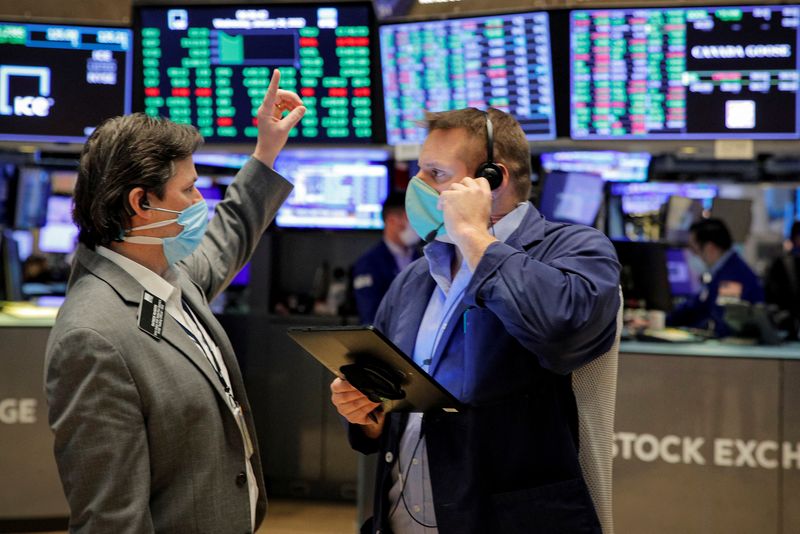By Geoffrey Smith
Investing.com -- Russia responds to the attack on its bridge link to Crimea with a barrage of missiles aimed at civilian targets across Ukraine. Policymakers descend on D.C. for the fall meetings of the Bretton Woods Institutions. Stocks are set to slip a little further at the opening, with no sign of a letup in Federal Reserve tightening. The Bank of England lays out a safety net for U.K. government bonds beyond the end of this week. And oil is also off a little from its Friday highs. Here's what you need to know in financial markets on Monday, 10th October.
1. Russia blasts Ukraine cities in retaliation for bridge attack
Russia launched a wave of missile attacks on Ukraine in retaliation for the attack on the Kerch Strait bridge that links mainland Russia and Crimea.
In contrast to previous Russian barrages, state media made no attempt to hide that their targets were civilian infrastructure.
The missile attacks were the first action of the new supreme commander of Russian forces in Ukraine, General Sergey Surovikin, and point to a fresh escalation of the war by President Vladimir Putin under pressure from the more extreme hawks around him. Russia's benchmark stock index fell 12% in response, while the yield on its 10-Year government bond rose 25 basis points to 10.16%.
Putin had previously labeled the attack on the Kerch Bridge, a prestigious and highly sensitive symbol of Crimea's forced union with Russia in 2014, as a "terrorist act," despite the fact that it targeted a train carrying military fuel supplies.
2. IMF, World Bank meetings
The world's finance ministers and central bankers will begin to descend on Washington, D.C. for the fall meetings of the International Monetary Fund and World Bank, at a time when the raising of U.S. interest rates is causing increasing problems for the world economy, not least by inflating the price of the dollar and all commodities priced in dollars.
It will be a major surprise if the IMF's new World Economic Outlook doesn't include a significant downgrade to its global growth forecasts for both this year and 2023.
Countries from Sri Lanka to Zambia and – naturally – Ukraine have all sought IMF and WB help as they have struggled to meet their obligations to foreign creditors this year, further stretching the world's emergency lending capacity. The IMF has committed over $250 billion to 93 countries since the start of the COVID-19 pandemic in 2020, and another $90 billion to 16 countries since February when Russia invaded Ukraine.
3. Stocks drifting lower after payrolls
U.S. stock markets are set to open a shade lower after a negative ending to the week in the wake of the September jobs report. The report showed employment still growing relatively rapidly, and few signs that the Federal Reserve is risking a recession with its multiple interest rate hikes.
By 06:15 ET (10:15 GMT), Dow Jones futures were down 36 points or 0.1%, while S&P 500 futures were down 0.2%, and Nasdaq 100 futures were down 0.4%. The three main cash indices had lost between 0.6% and 1.5% last week and have slid between 9% and 12% over the last month.
Stocks likely to be in focus later include Tesla (NASDAQ:TSLA) after data showed its sales hit a monthly record in China in September, suggesting that its recovery from COVID-related closure in Shanghai earlier this year has progressed well. The rest of the market is in the looming shadow of the third quarter earnings season, which starts in earnest on Friday.
4. Bank of England builds out Gilt safety net, but pound falls
The U.K. government bowed to pressure from the financial market and moved up the publication of its spending plans by three weeks to October 31st. That shortens the period of uncertainty to which U.K. markets will be exposed in the wake of a 'mini-budget' whose unfunded tax cuts and energy led to a sharp fall in the pound and government bond prices.
The Bank of England, meanwhile, said it would increase the maximum size of its daily Gilt auctions for the last week of their planned existence, to ensure that any pension funds still struggling for liquidity as a result of the slump in Gilts can still meet their margin call.
The BoE also said it will switch to a series of regular lending operations after the final outright Gilt auction at the end of this week – a shift that aims to keep a lid on the money supply and consequently the inflationary pressures arising from the government's actions. The pound fell 0.2% to $1.1065, while Gilts weren't impressed either: the 2-Year yield rose 17 basis points to 4.23%, while the 10-Year rose 12 basis points to 4.37%.
5. Oil eases from highs as Yellen castigates OPEC
Crude oil prices eased from six-week highs, but remain well-supported by U.S. demand and the prospect of a big cut in output at the end of the month by OPEC and its allies.
U.S. Treasury Secretary Janet Yellen told the Financial Times at the weekend that the so-called OPEC+ bloc's decision to cut output was "unhelpful and unwise."
Yellen is one of the G7 ministers working on a plan to cap the price that international buyers pay for Russian oil, hoping to weaken Putin's regime while still ensuring that supplies to world markets continue.
"Holding down prices is something that's particularly helpful to developing countries that are suffering from high energy prices," Yellen said.
U.S. crude futures were down 0.4% at $92.25 a barrel, while Brent was down 0.6% at $97.38 a barrel.
